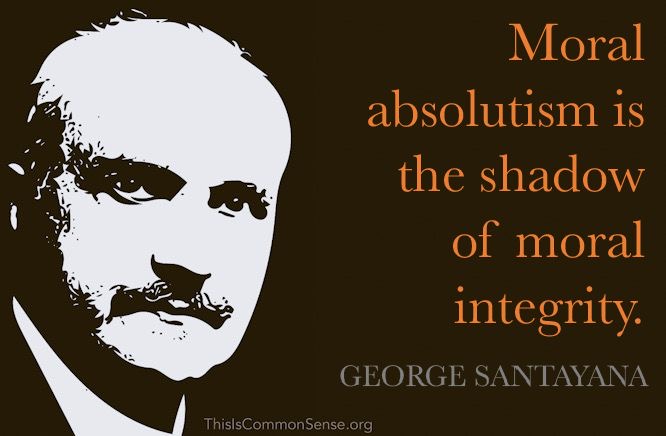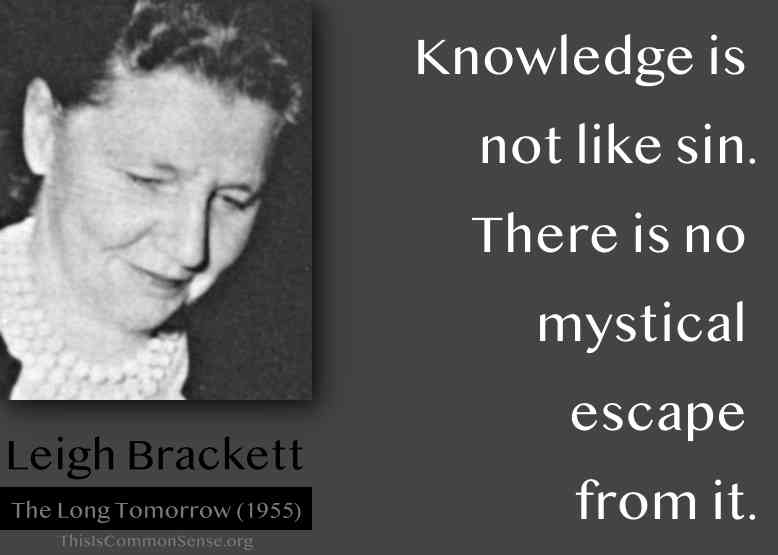Almost all nations and religions, and especially the liberal party in them, think themselves the salt of the earth. They believe that only their special institutions are normal or just, and hope to see them everywhere adopted. They declare that only the scriptures handed down by their own clergy are divinely inspired; that only their native language is clear, convenient, deeply beautiful, and ultimately destined to become universal; that only the logic of their home philosophers is essentially cogent; and that the universal rule of morals, if not continued in tablets preserved in their temple, is concentrated in an insoluble pellet of moral prejudice, like the categorical imperative of Kant, lodged in their breast. Not being content, or not being able, to cultivate their local virtues in peace at home, they fiercely desire to sweep everything foreign from the face of the earth. Is this madness? No: I should say it was only haste, transposing a vital necessity into absurd metaphysical terms. Moral absolutism is the shadow of moral integrity.
George Santayana, The Genteel Tradition at Bay (1931), p. 27.
Categories
George Santayana





